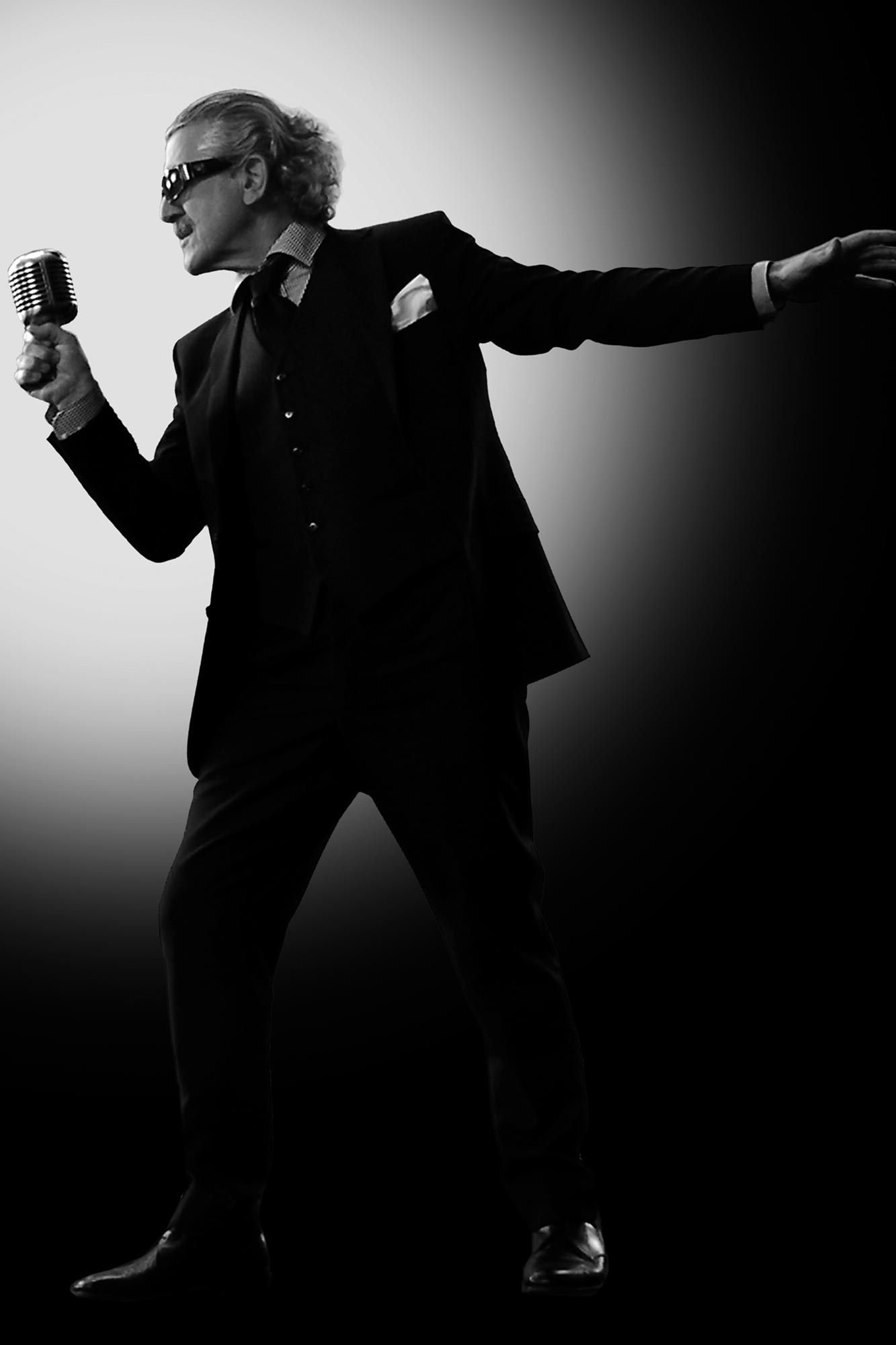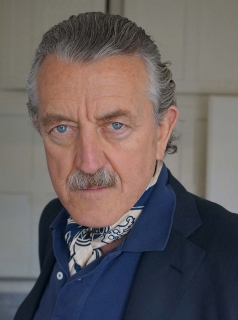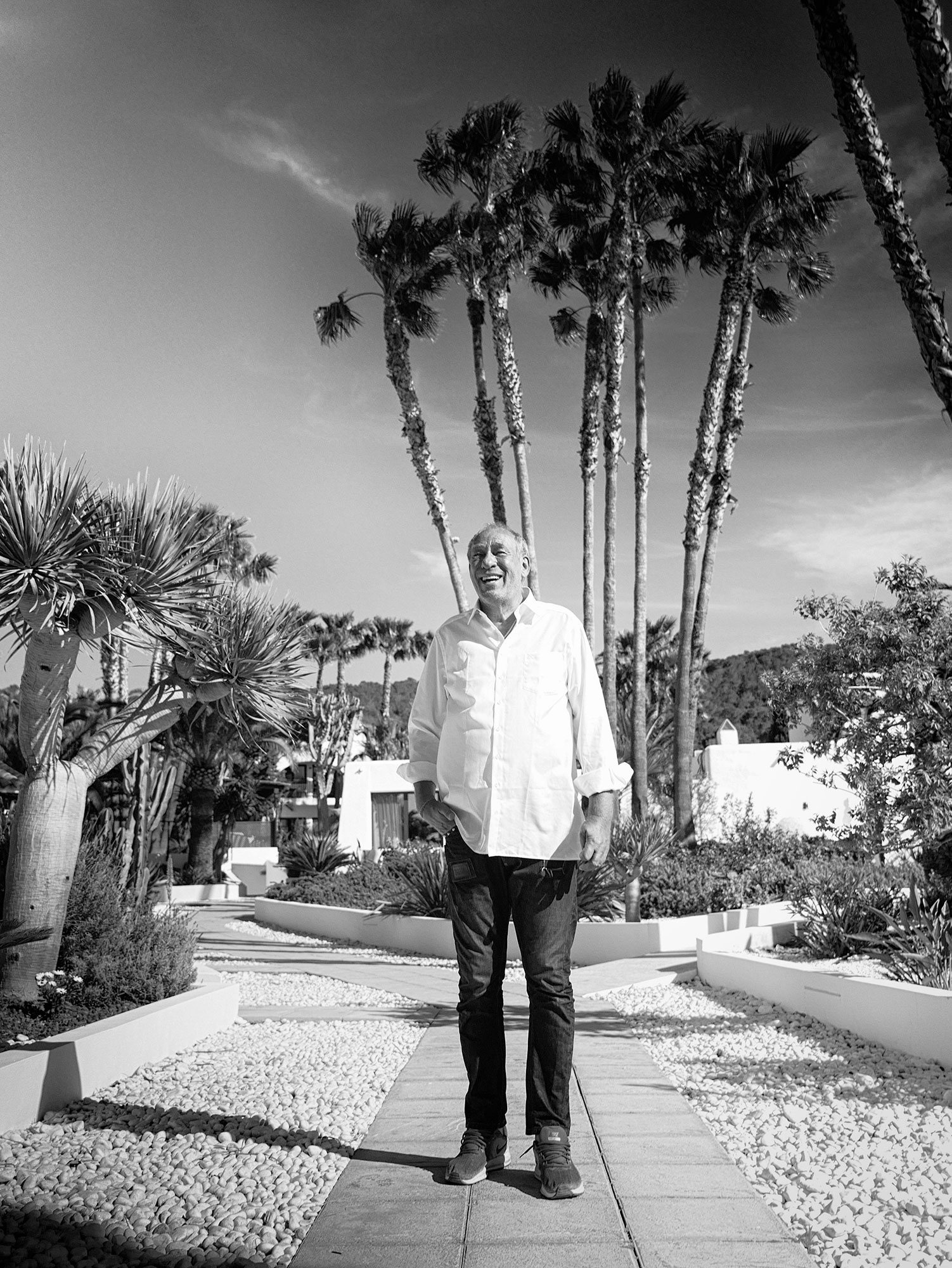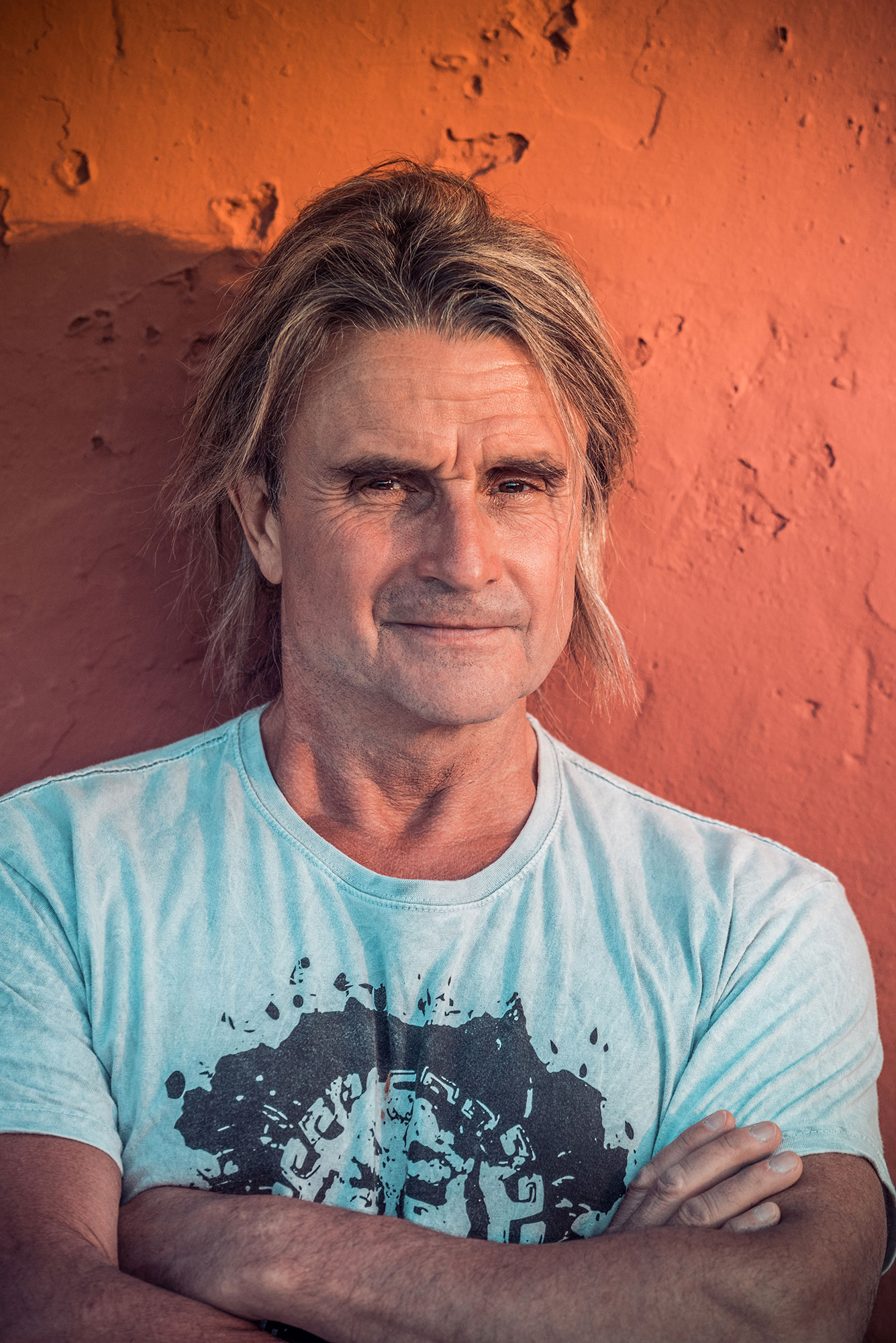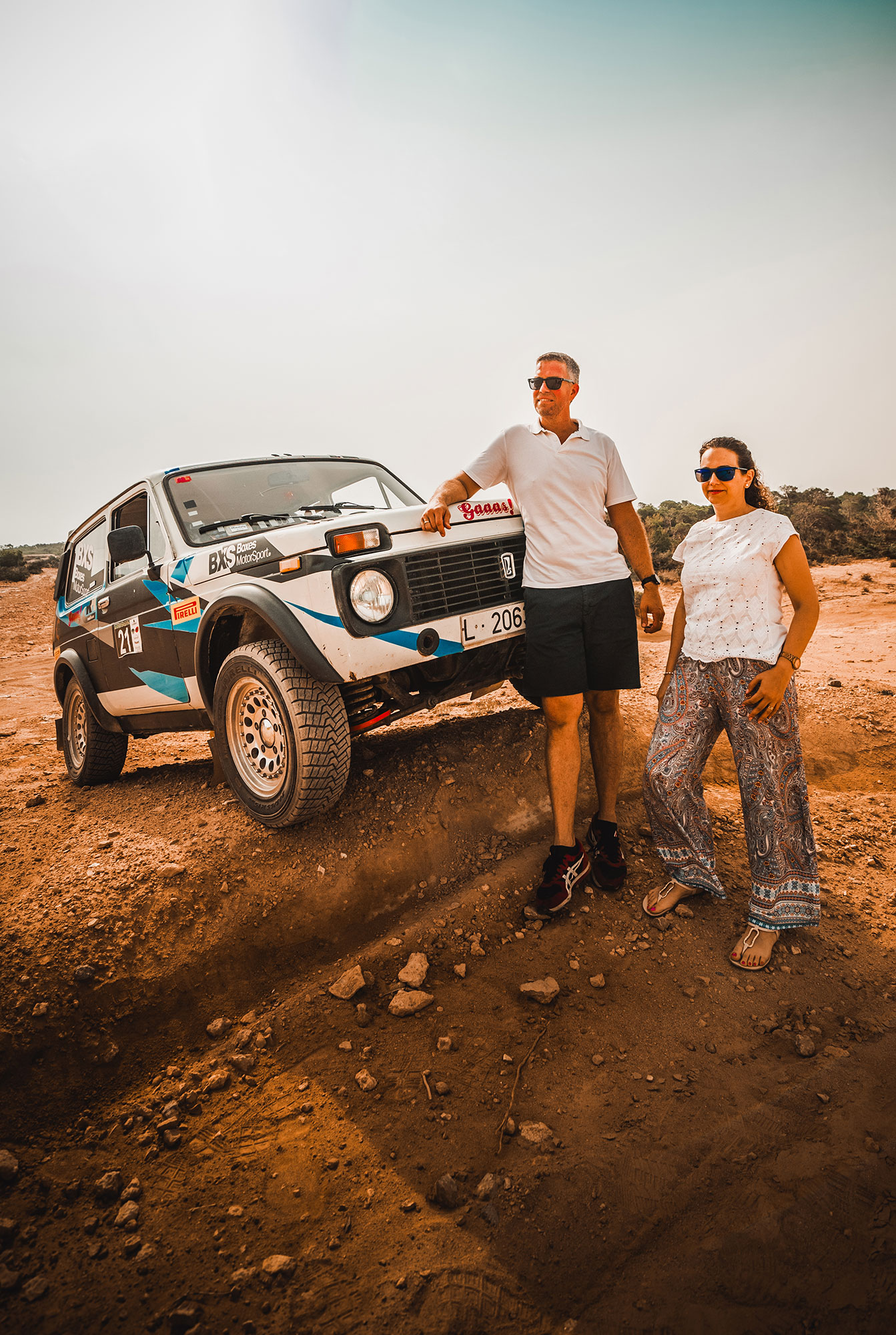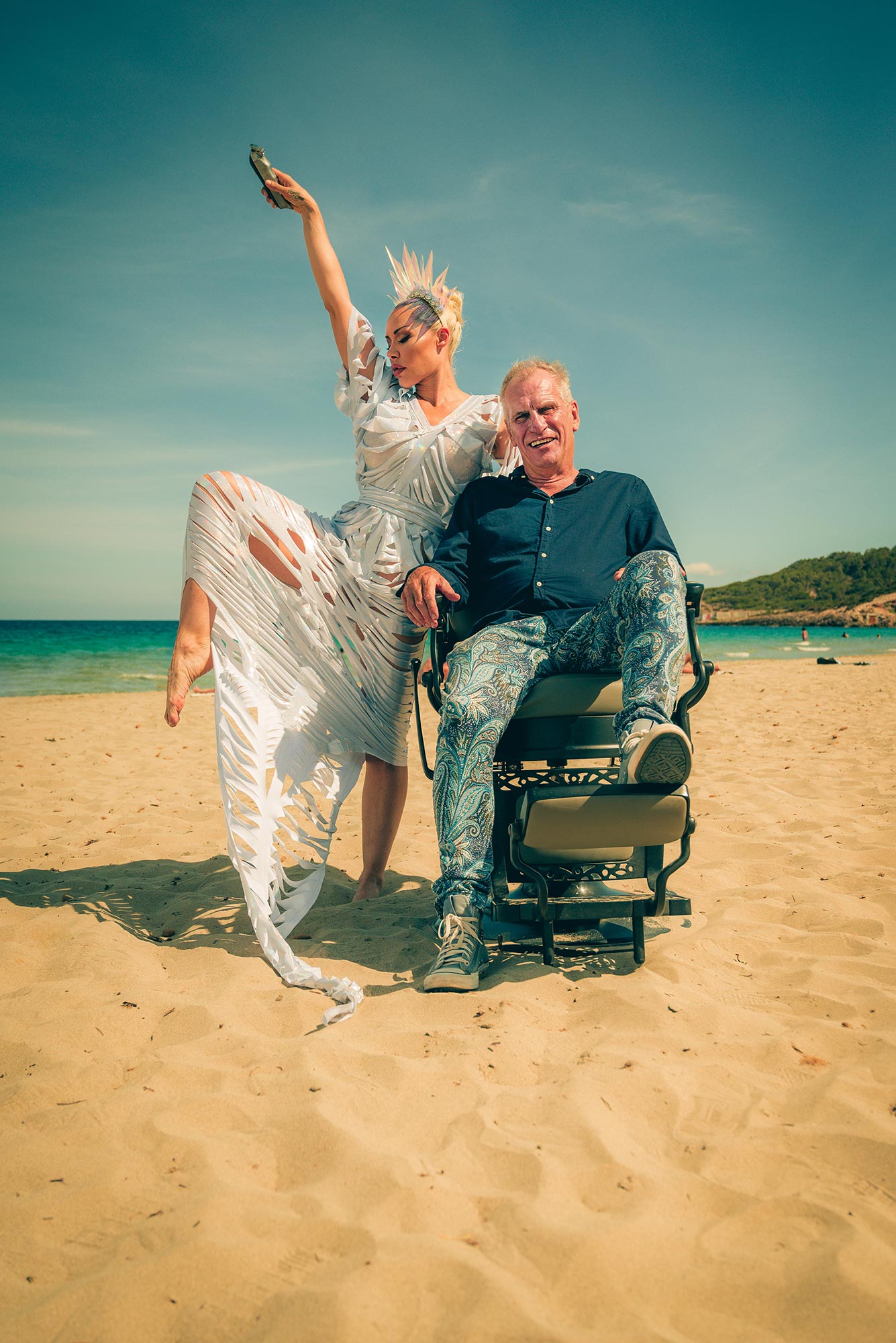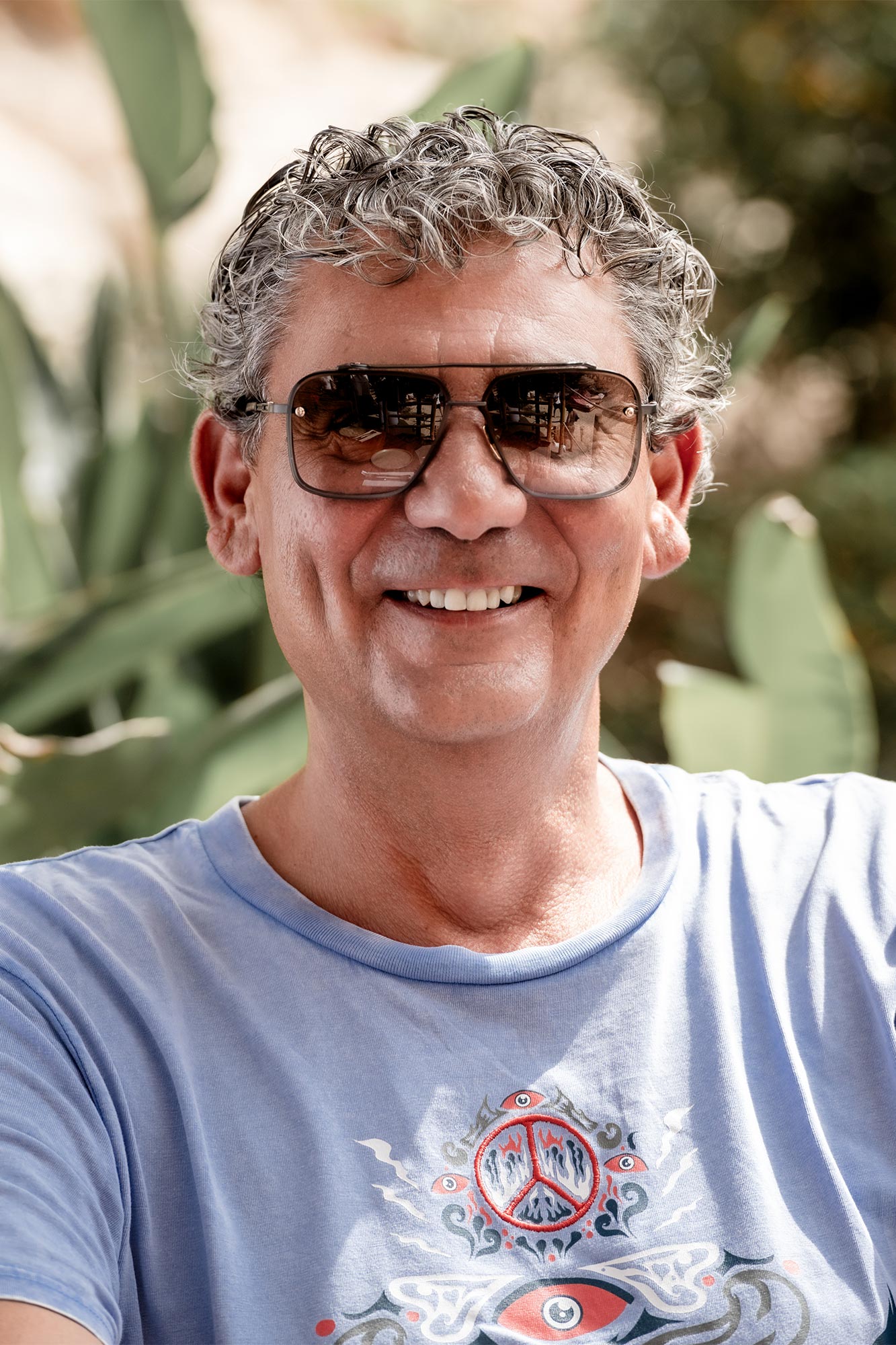Born in 1945 as the scion of a family of bankers in Zurich, year after year Dieter Meier gives the catchphrase “diverse interests” a new meaning. He broke off his legal studies and applied himself to the game of poker. Later on he raised livestock on a cattle ranch in Buenos Aires, became a shareholder worth millions, produced wine and designed watches. As if all this weren’t enough, he also works as a conceptual and performance artist. His appearance at Documenta 5 in Kassel was legendary. There, in 1972, he left a panel in the ground. The inscription read: “On March 23, 1994 between 3 and 4 pm Dieter Meier will stand on this panel.” No sooner said than done: 22 years later Meier stood right on that spot for 60 minutes in front of an enthusiastic audience.
Most long-lasting of all, however, was the impression Meier made as part of the band Yello. Founded in 1978 as a trio, the sound tinkerers shone with early classics such as “Bostich” or “She’s got a gun”. Years later, Yello had shrunk down to a duo and the mainstream was ripe for their idiosyncratic gems. Songs like the wonderful “Desire” became hits, while “The Race” turned into the title tune of the music show “Formula One”. In April Meier and his partner Boris Blank received the German record academy’s Ehren-ECHO for their life’s work. Not that that was a reason to take it easy, on the contrary: Shortly afterwards the man with the indispensable scarf published his debut album as a soloist. IBIZA Style met the master in Hamburg’s Park Hyatt hotel.
So, did you find somewhere to put the Echo?
It stands in the entrance hall of my house in Zurich.
Does that also make you a little reflective, in the sense of “What’s next?”
Not at all. That’s no reason to look back. Certainly not for me. I think of everything that’s somehow originated within me as the footprints on a walk. The Echo is a wonderful surprise. But I neither look back nor am I terribly proud. Nothing that I do in my life gives me the feeling that I was the one who did it; but rather that it came into existence within me – through many, many coincidences.
How was the Echo party?
That was like every year. I’ve already been there a few times. It’s an industry that celebrates itself there. It’s just an event that’s about success and not necessarily about art. These excellent people who are mainly pop singers and people who are led by the pressure of a particular production. Who work with respect to a market which is, by the way, very tough. Sometimes it works out and sometimes it doesn’t. At Echo you find exactly those people who serve this market very professionally and they are honoured for having sold so much.
Two men in their prime in elegant jackets, with handkerchiefs in their breast pockets and brilliantine in their hair formed the highlight at an event like this and then went on to perform a new song on stage. Your desire for innovation seems to know no bounds.
Actually, we were never ahead of our time or ever felt that way. We were like kids in a sand pit who become closer to themselves in these fantasy castles. Who invent themselves. When you walk along this path, then originality is already given because each human being is a unique, divine being. I am an atheist. I think that people are the real gods. What’s sold to us as religion, of course, is utter nonsense. Nevertheless, it goes without saying that this reinvention isn’t always possible. We also made LPs with Yello that were just treading water. We didn’t invent something new every time.
What struck me at the gig was the vibe between you and Boris Blank. You are still best friends, right?
We have become great friends and we have a deep appreciation of one another. I am incredibly fond of Boris. He’s an amusing, charming and highly sensitive young man. Whenever we do have an argument, it is always about music. In the studio sparks sometimes fly but it is this friendship that makes it all possible in the end. In private, we’ve hardly ever had a quarrel.

He saw the first concert and he was thrilled. And above all, surprised that I stood on the stage for two hours and sang songs after I’ve never done it before in my life. In my first unstructured performances in the 70s I used to scream my head off; it was something completely different. Boris was definitely afraid for me, too. Is Dieter going to be able to do it? Will he find an audience?
Have you also asked yourself these questions?
No, I didn’t have any picture in my mind of what could happen. Of course, I quickly sensed that the first two songs had gone over well. But I’m not a professional singer in that sense. Nonetheless, the audience really carried me through the gig after that and when that happens, then you can take ever greater risks. And also leave what is learned behind to add something improvised. There was euphoria at the end of the concert. People were amazed what this old studio hand had managed to pull off.
Your solo debut hasn’t exactly arrived early in your career. Have you ever thought that you should have done this earlier?
I don’t think along the lines of “If only I had…”. I believe that things come to a man by fate. This whole album has come to me at the right moment. I never strived for it to come out like that, just like almost everything else in my life. Of course, there’s this person, this Mr. Meier, who is just like every person in the world. On one hand, determined by genetic conditions. On the other hand, determined by where this little man has landed on the planet. That’s what gives you character. I like to compare it with the rhizome, the network of a mushroom plant that’s located beneath the ground. Only when the temperature is right, when the rain falls, when symbiosis with a tree takes place, can the mushrooms then come out of the ground. Only then can something grow and come into being. I would never have made such professional music in my life, if I hadn’t met “the tree”, Boris Blank, with whom I could then proceed in a symbiotic fashion. With whom I had the opportunity as an unstructured, lazy dog to step into these wonderful sounds and write myself a role there. In contrast to “Out of Chaos,” Yello is and always was a game of role-play.
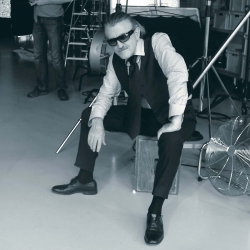
That was something totally different. It came out of chaos, out of singing along to an out of tune guitar. Scraps of conversation and stories suddenly formed. At that time we were already on tour with an initial line-up, all great jazz musicians. The songs were recorded later and played to the producers who came up with two very different ways we could go with it. Nonetheless, I really loved it straight away. A song world, far away from what I had done live. As a result I definitely wanted to make the album with these people, on the condition that I didn’t have a say in anything. I didn’t want to corrupt their creative process with my ideas. In that phase of the creative process, the producer must be allowed to be an idiot who knows nothing. What comes out of the chaos, hopefully something original, uncovers the person within.
What about the muse that you are waiting for – do you need a particular situation, an experimental arrangement in order to write lyrics?
In my transitory life I make music everywhere anyway. Completely amateurish and unstructured. When I got my first guitar I removed all the strings, except for one. Then I played it as they do in Indian music, while adding a bit of sing-song. But it’s never been the case that I have had to be particularly inspired and then sit down and make something out of that inspiration. The songs now are the result of an unstructured wandering as well as out of a sense of doubt as to whether this is doable.
Is Ibiza a good place for you to be creative?
As I said, it’s not important to me where I am.
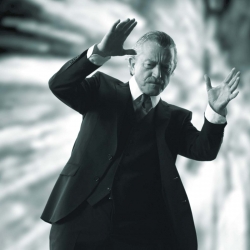
That was a long time ago, 30 years. For the last ten years I have been renting a wonderful house perched high on a hill above San Juan.
What brought about the decision to settle here, at least part of the time?
For me, Ibiza has always been a wonderful island of contrasts. A place of seclusion but also the crazy circus in the clubs, the incredible merry-go-round of people showing off, the shameless exhibition in this insane marina. For an observer or a voyeur who steps into this, Ibiza is one of the world’s epicentres – the eccentricity, the posing, and the projection of self.
What kind of balance do you strike between club life and relaxation?
I rarely go to the clubs in Ibiza. If I go shopping in the market, I sit down for one or two hours in the café, read the newspaper and observe this many-hued dance.
In your opinion, has the island changed a lot?
The circus has been held here for 40 years, and it gets more and more intense. The yachts get larger and more lavish. The advertising of prostitution more shameless. The girls from the brothels wander around the streets half naked carrying banners. The people who organise them drive them into the city in cars, unload them and then they strut around Ibiza Town with their bare butts promoting their brothel. It’s getting more extreme. It’s not that I have got anything particularly against it either, but this circus has been around for 40, 50 years.
Do you have a favourite place?
The place where my house stands. It’s really wonderful. The absolute calm, the sea view. Even in summer, there’s always a cool breeze. For me it’s the perfect place for a life of nothingness. I can spend days on end there without doing a thing. I call them “dog days”. The dog is lying around somewhere. For reasons that he is unaware of, he gets up, walks twenty yards, turns around in a circle three times and then lies back down. Life in this house, where I also write lyrics and play the guitar, is already a purposeless life. Except for a spot of cooking maybe.
Would Ibiza be the right place to settle down?
That’s never been an option for me. I am rarely in one place for more than two weeks. I have several residences around the world. I am constantly on the move. Staying put in one place, no matter how beautiful it is there too, is completely unthinkable. I’m happy to get here and equally happy to leave.
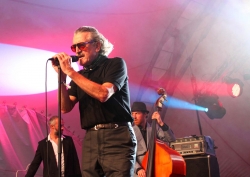
Yes, it’s an atmosphere that I love very much. The bar where you sit alone, but in public at the same time. Life in the big city. You leave the bar where you’ve been sitting for an hour. You stand on the road and you don’t know whether you want to go left or right. For some reason you go left, then make a stop. You spy another bar; you go in and drink a beer. These are the random, meandering urban wanderings that occur in a wonderful, public solitude. That’s what I love above all. I can be alone for weeks in a city without having anything to do and let myself be carried along like a piece of driftwood by the invisible currents.
With everything that you’ve done – raising cattle, designing watches, making films – music’s something that you return to again and again. Is it the one constant in this “letting yourself go”?
The constant is Boris Blank. He’s a rock in my life. For him making music really isn’t just an option that you can be aware of or not. For him, music is his life, it’s breathing, oxygen. Without music Blank would despair. He would perish.
What would life be like for you without music?
Not producing music would be ok. I would regret it if I could not sing along to a guitar anymore, if you banned me from doing it.
In his tribute to you at Echo Dieter Moor spoke about your roots in punk music. Could the next album be a punk album, too?
No. By definition, punk’s a crude form of spontaneous self-exploitation. The days when you went up on stage hollering in an unstructured and chaotic way – are over. And that goes for naivety, too. I’ve lost that of course.
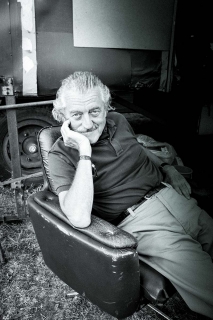
Malcolm McLaren: “A brilliant charlatan, God rest his soul, who shamelessly exploited the Sex Pistols. They really had no idea what was happening to them. And McLaren shoved them out onto the stage. He had the master plan; the poor guys could hardly even play their instruments. ”
Bob Marley: “He is one of the big bosses, Bob Marley. All I have to do is watch the films where he’s playing live and I start to cry. Amazing. ”
Grace Jones: “I knew her pretty well in her heyday. At that time she was working with Trevor Horn and they had to make a single first. So she came to the studio,
